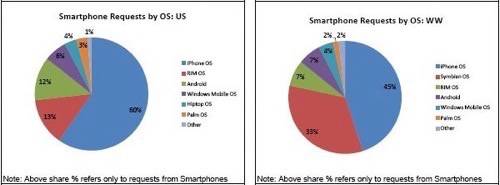In this edition of the Weekly Wrapup – our newsletter summarizing the top stories of the week – we analyze the 5 biggest trends of 2009 on the Web, review the iTunes and iPhone announcements made by Apple during the week, tell you about a new WordPress feature that makes blogs more real-time, and more. We also check in on our two new channels: ReadWriteEnterprise (devoted to ‘enterprise 2.0’ trends and products) and ReadWriteStart (dedicated to profiling startups and entrepreneurs).

Subscribe to Weekly Wrapup
You can subscribe to the Weekly Wrapup by RSS or by email (form below).
RWW Weekly Wrap-up Email Subscription form:
Purchase The ReadWriteWeb Guide to Online Community Management
Our First Premium Report for Businesses
The ReadWriteWeb Guide to Online Community Management is a premium report for businesses seeking to engage with online communities. It is a 75 page collection of case studies, advice and discussion concerning the most important issues in online community. You will also get a companion online aggregator that delivers the most-discussed articles each day. All of this is available for purchase at a price of $299. You can download a free sample section of the report here.

Top 5 Web Trends of 2009
This week ReadWriteWeb ran a series of posts analyzing the 5 biggest Web trends of 2009. Click each story below for the full-length posts:
Structured data is rapidly becoming a feature of today’s Web. Companies like Thomson Reuters and Google are enabling data to be structured, and new types of products (like Wolfram|Alpha) will make use of structured data in ways we perhaps can’t imagine right now.
This has been probably the most hyped trend of 2009. The Real-Time Web has become a core part of many Internet products this year: Twitter, FriendFeed, Facebook, Google, Delicious, WordPress, and many others.

Personalization has long been a buzzword on the Internet. With the glut of information on the Web circa 2009, personalization in this era means providing effective filters and recommendations.
4. Mobile Web & Augmented Reality
Clearly mobile devices are an increasingly important way to access the Web. What’s perhaps most encouraging however, is the entirely new class of mobile apps we’re seeing. Augmented Reality is the most obvious example. It’s been a big year for mobile, with much promise to come.

The fifth and final part of our series is about the Internet of Things, when real world objects (such as fridges, lights and toasters) get connected to the Internet. In 2009, this trend has ramped up and is adding a significant amount of new data to the Web.
Other Web Trends
Forget the iTunes LP, Apps are the New Album
The “iTunes LP” was just one of many new iTunes features revealed this week. Butit has a heavy burden on its shoulders. It’s supposed to revitalize the music industry by encouraging consumers to once again purchase entire albums as opposed to single tracks. However, innovative artists are already discovering how to monetize their music while engaging fans in new ways that have nothing to do with a re-imagined LP. Instead, the “interactive format” of the future isn’t the album, it’s the app.

In 8 Years, Online Video Consumption Will be Measured in Exabytes
One exabyte is a billion gigabytes. It’s one quintillion bytes. And yes, “quintillion” is a number so large, it almost seems made-up. But that’s how much online video will be consumed by 2017, according to new reports from U.K.-based research firm Coda. Actually, to be precise, they’re claiming that mobile broadband users accessing the net via laptops and netbooks will consume 1.8 exabytes of video. Per month.

How Facebook Beat MySpace: From College Dorm to Platform
Two years ago Danah Boyd described Facebook as “hegemonic” and MySpace as the haven of “subaltern” teens. Whether Boyd intended it or not, Facebook became characterized as the privileged space of college kids and MySpace was plagued with the perception of lowbrow tackiness. But now, according to a recent Hitwise blog post, Facebook is not only beating MySpace’s traffic – it’s the second ranked site overall in the US behind Google.

SEE MORE WEB TRENDS COVERAGE IN OUR TRENDS CATEGORY
A Word from Our Sponsors
We’d like to thank ReadWriteWeb’s sponsors, without whom we couldn’t bring you all these stories every week!
- Mashery is the leading provider of API management services.
- Domain.ME, the official registry for all .ME Domains.
- Codero, Dedicated Hosting with Backup & Managed Services.
- Faroo, Real-Time search.
- Groupsite.com, How Groups Make Things Happen.
- Crowd Science gives you detailed visitor demographics.
- hakia is a semantic search engine.
- Rackspace provides dedicated server hosting.
- Aplus provides web hosting services for small business hosting needs.
- MediaTemple provides hosting for RWW.
- SixApart provides our publishing software MT4.
ReadWriteEnterprise
Our channel ReadWriteEnterprise, devoted to ‘enterprise 2.0’ and using social software inside organizations.
Salesforce.com Service Cloud 2: Customer Service for the Social Web
Salesforce.com is best known for its CRM and its cloud computing platform. But according to the company its fastest growing product is Service Cloud, a kind of SaaS customer service software meant to replace the traditional call center. Salesforce.com has launched the second version of Service Cloud, which incorporates new capabilities for handling content as well as a close connection with the social networks.

ReadWriteStart
Our channel ReadWriteStart, sponsored by Microsoft BizSpark, is dedicated to profiling startups and entrepreneurs.
Design for Startups: The Aesthetics of Web Apps in 6 Questions
Look and feel is the first thing we see and notice about most web apps and is often critical to an app’s user experience, adoption, and ultimate success. We chatted with a panel of expert aesthetes in the space, including Spymaster designer Eston Bond, veteran creative director Rich Barrett, designer/developer Warren Benedetto, Mike Rundle of 9rules and Beak fame, and the Paul du Coudray Lowdown. Here’s what they had to say about developers doing double duty as designers, trends they’d like to see disappear, and how aesthetics can help a startup sink or swim.

SEE MORE STARTUPS COVERAGE IN OUR READWRITESTART CHANNEL
Web Products
It’s Only Rock and Roll: Steve Jobs is Back, iPhone 3.1, iTunes 9 & iPod Updates
Steve Jobs returned to a standing ovation at Apple’s annual iPod event this week, where Apple introduced version 3.1 of the iPhone OS and the next version of iTunes. With iTunes 9, Apple introduces a Genius-like recommendation feature for apps, a major redesign, ‘iTunes LPs‘ that will bring liner notes and artwork to digital albums, and app management for the iPhone and iPod touch built in to iTunes.

See also: iPhone 3.1: Some Nice Tweaks – Augmented Reality Still Only Semi-Supported
WordPress Just Made Millions of Blogs Real-Time With RSSCloud
All blogs on the WordPress.com platform and any WordPress.org blogs that opt-in (using this plug-in) will now make instant updates available to any RSS readers subscribed to a new feature called RSSCloud. RSSCloud is an element that’s always been present in the RSS 2.0 spec but has drawn new attention with the rise of interest in the Real-Time Web.

Android Market Passes 10K Apps; Marshall’s 5 Favorites (With QR Codes)
Google’s Android mobile operating system isn’t as popular as the iPhone, but its application marketplace is wide open and one service tracking Android apps reports that there are now more than ten thousand available. In this post lead RWW writer Marshall Kirkpatrick outlines his five favorite Android apps so far, along with QR codes you can scan.

Facebook Open Sources FriendFeed’s Ultra-Fast Real-Time Web Framework
Facebook announced this week that it has released Tornado, the real-time web framework that powers FriendFeed, as open source code. According to Facebook’s David Recordon, Tornado is one of the core infrastructure pieces that power FriendFeed’s real-time functionality.

SEE MORE WEB PRODUCTS COVERAGE IN OUR PRODUCTS CATEGORY
That’s a wrap for another week! Enjoy your weekend everyone.

















